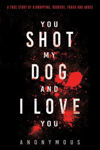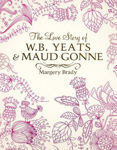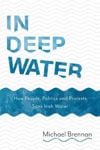The Mercier Press Ltd
View as
Sort by
Display per page
Police Casualties In Ireland 1919 1922
9781781176344
The Royal Irish Constabulary are often portrayed as the villains of the War of Independence in Ireland, Irishmen who betrayed their country by serving the British regime. No memorial has been raised in Ireland to those who died during the conflict and their names are largely forgotten, apart from a few who gained notoriety through the fact that Michael Collins himself ordered their killing. As a result, while their deaths are recorded in histories of the time, little attention is paid to the men themselves.
€19.99
You Shot My Dog and I Love You
9781781177211
Set in the UK and Ireland in the late 1970s and early 1980s, A harrowing story of horrific physical and mental abuse inflicted on the author at the hands of his parents
€17.21
Guerilla Days in Ireland - New Edition
9781781171714
The extraordinary story of the fight between two unequal forces, which ended in the withdrawal of the British from twenty-six counties. Before the Truce of July 1921, the British presence in County Cork consisted of over 12,500 men. Against these stood the Irish Republican Army whose flying columns never exceeded 310 riflemen in the county.
€19.99
The Battle for Cork: July-August 1922
9781856356961
The full story of the vicious battle between Republican and Provisional Government forces for control of Cork in August of 1922.
€14.99
The Murder of Dr Muldoon: A Suspect Priest, A Widow's Fight for Justice
9781781176900
A priest and his housekeeper abandon a baby girl on the doorstep of a house near the Black Church in Dublin’s north inner city in February 1923. Three local women notice the couple's suspicious behaviour and apprehend them. The two are handed over to the police, charged and sent for trial. A month later, a young doctor is shot dead on the streets of Mohill, Co. Leitrim. The two incidents are connected, but how?
€14.99
Shooting and Cutting: A Survivor's Guide to Film-making and Other Diseases
9781781176764
Stephen Bradley has spent a very hectic year and a half promoting his latest film, Noble. What he doesn't know, until now, is that during the same period he was also developing a Stage IV cancer that has now spread to vital organs.
€15.50
The Love Story of Yeats & Maud Gonne
9781781176269
A dramatic and compelling story of the great love of W.B. Yeats for Maud Gonne, the woman he immortalised in his poems.
€7.99
Worlds Apart: An Alternative Journey to becoming a Modern Man
9781781176825
How did Ronan go from a stereotypical country life to the world of theatre performance? Worlds Apart is his open and honest account of his own personal journey from a "normal" life to something very different.
€14.99
My Fight For Irish Freedom: Dan Breen's Autobiography
9780947962333
Dan Breen is well known because of his involvement in the ambush and killing of two RIC policemen at Soloheadbeg - widely regarded the start of the War of Independence. This personal memoir shows how a burning belief in achieving Irish freedom sustained him through many a dark day and how slowly support came from the people.
€16.99
In Deep Water - Irish Water
9781781176580
The issue of water charges has divided the country. This book will appeal to both sides of the debate by giving an honest, lively and insightful account of the dramatic events before, during and after water charges. It will speak to the one million people who actullay paid their water charges, but also show the scale and intensity of the anti-water charges movement, which succeeded in getting 100,000 people out onto the street and in ultimately reversing the charges.
€22.25
With The Irish In Frongoch
9781781171677
A classic account, first published in 1917, written by one of the inmates, of the Welsh internment camp where the 1916 rebels were held
€14.99
Rebel Kerry, from the pages of "The Kerryman"
9781781174784
The full story of the revolutionary period in Kerry from current 'Kerryman' journalists as well as contemporary reports from the archives.
€16.64














